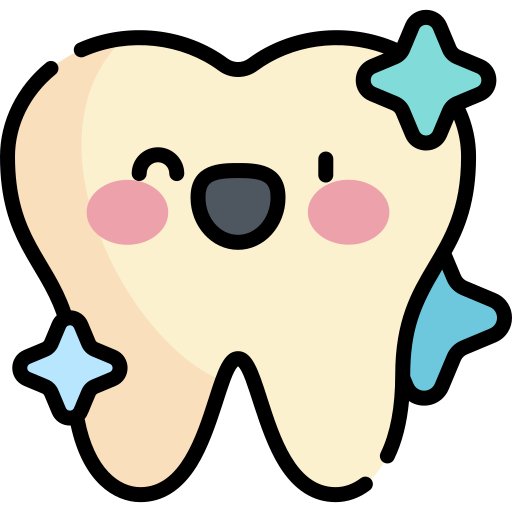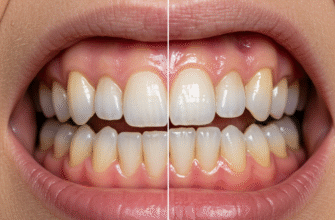You might not give it a second thought, but that watery fluid constantly present in your mouth, saliva, is one of your teeth’s staunchest allies. Produced by your salivary glands, this unsung hero works around the clock, performing a multitude of tasks crucial for maintaining oral health and protecting your pearly whites. Without it, simple acts like speaking, chewing, and even tasting food would become difficult, and your teeth would be far more vulnerable to damage.
The Powerhouse Glands Behind the Scenes
Your saliva isn’t produced by just one source; it’s a team effort. You have three pairs of major salivary glands: the parotid glands (the largest, located inside your cheeks), the submandibular glands (found under the floor of your mouth), and the sublingual glands (situated beneath your tongue). In addition to these, hundreds of tiny minor salivary glands are scattered throughout your mouth – on your lips, inner cheeks, palate, and other surfaces. Together, these glands diligently produce the saliva that bathes your teeth and oral tissues.
The composition of saliva is surprisingly complex, mostly water (over 99%), but that remaining fraction is packed with vital substances. These include electrolytes like sodium, potassium, calcium, and phosphate; mucus for lubrication; enzymes to kickstart digestion; and various proteins and antibodies that help defend against oral bacteria.
A Day in the Life: Saliva’s Key Roles for Your Teeth
From the moment you wake up until you go to sleep (and even while you’re sleeping, albeit at a reduced rate), your saliva is on duty. Here’s a breakdown of its most important daily contributions to your dental well-being:
1. The Great Rinse Cycle
Think of saliva as your mouth’s natural rinsing agent. After you eat, tiny food particles inevitably get left behind, clinging to your teeth and lodging in crevices. Saliva helps to wash away these food debris and sugars before harmful bacteria can feast on them and produce acids. This continuous cleansing action plays a significant role in preventing plaque buildup and, consequently, tooth decay.
2. Neutralizing Nasty Acids
Whenever you consume sugary or acidic foods and drinks (like sodas, citrus fruits, or candies), the bacteria in your mouth metabolize these sugars and release acids. These acids attack your tooth enamel, the hard, protective outer layer of your teeth, leading to demineralization – the loss of essential minerals. Saliva acts as a buffer, helping to neutralize these acids and bring the pH level in your mouth back to a safer, more neutral state. This buffering capacity is crucial for minimizing the duration and intensity of acid attacks on your enamel.
3. The Remineralization Repair Crew
Even with saliva’s best efforts, some demineralization is bound to occur. Fortunately, saliva is also key to the repair process, known as remineralization. It’s rich in calcium and phosphate ions, the very building blocks of your tooth enamel. Saliva constantly bathes your teeth in these minerals, allowing them to be reabsorbed into areas of the enamel that have been weakened by acid attacks. This ongoing process helps to repair early lesions and keep your enamel strong. Fluoride, often found in toothpaste and some water supplies, enhances this remineralization process, making saliva even more effective.
4. Lubrication for Smooth Operation
Saliva keeps your mouth moist and lubricated. This might seem basic, but it’s essential for comfortable speaking, chewing, and swallowing. Without adequate saliva, your mouth would feel dry and sticky, making these everyday functions difficult and uncomfortable. For your teeth, this lubrication means less friction against soft tissues and a smoother passage for food, reducing physical wear and irritation.
5. Kicking Off Digestion
While not directly a tooth-protection mechanism, saliva’s role in digestion indirectly benefits oral health. Saliva contains enzymes, most notably amylase, which begins the process of breaking down starches into simpler sugars right in your mouth. This initial step makes food easier to swallow and subsequently digest. Efficient digestion means food spends less time lingering in the mouth, reducing the window of opportunity for bacteria to thrive on undigested particles.
6. Antimicrobial Defense Force
Your mouth is home to a vast ecosystem of bacteria, some beneficial, some harmful. Saliva contains several components with antimicrobial properties that help keep the bad guys in check. These include:
- Lysozyme: An enzyme that can break down the cell walls of certain bacteria.
- Lactoferrin: A protein that binds to iron, an element many harmful bacteria need to grow, effectively starving them.
- Antibodies (like IgA): These proteins help to prevent bacteria and viruses from attaching to the surfaces in your mouth.
- Histatins: These proteins have antifungal properties and also play a role in wound healing within the mouth.
By controlling the population of harmful microbes, saliva helps protect your teeth from bacterial attack and your gums from infection.
Did you know that a healthy individual typically produces between 0.75 to 1.5 liters of saliva every day? This constant flow is a testament to its importance. The rate of production varies, increasing during meals and decreasing during sleep.
When the Flow Slows: The Impact of Reduced Saliva
When salivary glands don’t produce enough saliva, a condition commonly known as dry mouth (xerostomia) can occur. While we are not delving into specific medical causes here, it’s important to understand the consequences for your teeth if saliva flow is compromised. A persistent lack of saliva significantly hampers all the beneficial functions mentioned above.
With reduced saliva:
- Food debris isn’t washed away as effectively, leading to more plaque.
- Acids are not neutralized as quickly or efficiently, prolonging acid attacks on enamel.
- Remineralization is impaired, making teeth more susceptible to cavities.
- The mouth feels uncomfortable, and swallowing can be difficult.
- The risk of dental decay, particularly root cavities, and gum disease increases substantially.
This highlights just how vital a healthy salivary flow is for daily dental defense.
Supporting Your Salivary Glands
While your salivary glands work automatically, you can support their function and help maintain a healthy oral environment. Staying well-hydrated by drinking plenty of water is fundamental, as water is the primary component of saliva. Chewing food thoroughly also stimulates saliva production – another reason to take your time during meals. Opting for sugar-free gum can also be a good way to stimulate saliva flow between meals, helping to rinse away food particles and neutralize acids.
A diet rich in fibrous fruits and vegetables can also promote chewing and, consequently, saliva production. These foods also provide essential nutrients that contribute to overall oral health.
The Protective Pellicle
Another fascinating aspect of saliva’s role is the formation of the acquired pellicle. Within seconds of your teeth being cleaned, proteins from your saliva begin to coat the tooth surfaces, forming a thin, invisible film. This pellicle acts as a protective barrier, a sort of natural shield. It helps to reduce a small amount of tooth wear, can limit acid diffusion to the enamel surface, and provides a surface for beneficial bacteria to attach, sometimes outcompeting more harmful strains. However, it’s also the surface to which dental plaque first adheres, which is why regular brushing and flossing are still essential to remove the plaque that forms on top of the pellicle.
Your saliva is truly a remarkable and indispensable fluid. Its complex composition and multifaceted functions provide a continuous, natural defense system for your teeth and oral tissues. From washing away food particles and neutralizing harmful acids to repairing early tooth damage and fighting off microbes, saliva works tirelessly. The next time you enjoy a meal or simply feel the moisture in your mouth, take a moment to appreciate the silent, powerful work your salivary glands are doing to help keep your smile healthy and bright, every single day.








